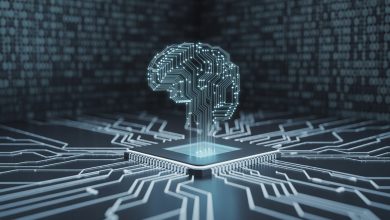
It is impossible to underestimate the importance of artificial intelligence (AI) in today’s world. From healthcare and education to finance and governance, AI is transforming nearly every sector of modern society. Yet one area where AI’s implications are only beginning to be fully understood is human rights.
Across global academic and policy circles, discussions on AI’s ethical boundaries have intensified. Leading human-rights scholars are urging governments and corporations to embed fairness, dignity, and equity into every layer of AI design and deployment.
Among these voices are Philip Alston, John Norton Pomeroy Professor of Law at NYU School of Law and former UN Special Rapporteur on Extreme Poverty and Human Rights, who produced a landmark report on digital welfare systems and AI’s impact on social protection; Hannah R. Garry, Executive Director of the Promise Institute for Human Rights at UCLA School of Law, who has convened global symposia on AI and human rights; and Jake Okechukwu Effoduh, Professor at the Lincoln Alexander School of Law, whose scholarship explores AI governance and digital rights across Africa.
Joining these global figures is Sam Omotoso, a prominent human-rights educator and policy advocate known for pioneering human-rights education through media communication. Omotoso has contributed significant thought leadership at the intersection of AI, ethics, and public policy, emphasizing that the world is experiencing a digital transformation with profound human consequences.
Speaking during a virtual symposium organized by Lawgistics Africa, a leading leadership and capacity-building platform, Omotoso explained that “the rapid advancement and pervasive integration of Artificial Intelligence (AI) are fundamentally reshaping economies and societies, yet this technological revolution is creating a global human-rights crisis built upon systemic, present-day harms that risk ‘supercharging’ global inequalities.”
He further noted that in the United States, the prevailing approach to regulating emerging technologies particularly in the digital realm has historically favored a “light-touch” strategy designed to prevent regulatory overreach. “However,” he warned, “this lenient regulatory environment has raised concerns among human-rights organizations. Without adequate and effective oversight, technologies such as generative AI may exacerbate risks to human rights in areas like welfare access, education, employment, labor rights, privacy, and online safety.”
Omotoso emphasized that these challenges reflect a deeper ethical failure within the global AI ecosystem.
“Across the domains of labor, privacy, data ownership, justice, environment, and future cryptographic security, AI development practices have systematically infringed on fundamental rights and diminished people’s day-to-day well-being,” he explained. “From traumatized content moderators in Nairobi to pervasive street-level surveillance in Delhi, from unconsented data scraping on global forums to biased hiring and sentencing algorithms, each breach compounds the erosion of dignity and autonomy for those most exposed to these hidden harms.”
For Omotoso, this represents a defining moral moment in human history.
“Artificial intelligence and emerging technologies such as quantum computing have brought humanity to a defining moment, one where the pace of innovation has outstripped our collective capacity to safeguard human dignity,” he said. “The trajectory of AI development is not merely a technical or economic question; it is a profound human-rights challenge.”
Citing researchers such as Kate Crawford and Vladan Joler, Omotoso added that despite optimistic narratives of innovation and efficiency, today’s AI ecosystem remains deeply entangled with systemic exploitation, pervasive surveillance, algorithmic discrimination, and ecological depletion. “The promise of digital progress,” he observed, “continues to be financed by unacknowledged human and environmental costs borne disproportionately by marginalized communities across the Global South.”
As the global community races to harness the benefits of AI, voices like Omotoso’s remind policymakers and technologists that the future of innovation must be measured not only by its speed or profitability but also by its commitment to human dignity, equality, and justice.
About Sam Omotoso
Sam Omotoso is a human-rights lawyer, policy researcher, and educator whose work bridges law, technology, and public communication. He is recognized for pioneering human-rights education through media platforms, using dialogue and advocacy to expand civic awareness across Africa and beyond. His scholarship and research examine the intersection of artificial intelligence, ethics, and human-rights policy, advancing a rights-based approach to technological innovation in the twenty-first century.



